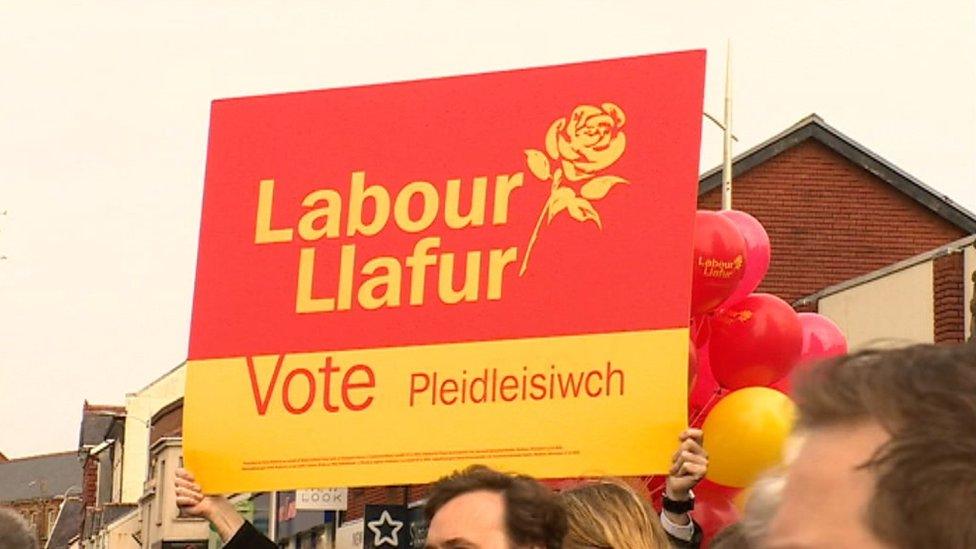Big questions for Labour over Brexit
- Published

Nothing much seems to have changed over the summer break.
The last story I did before going on holiday was about Labour's position on Brexit, and one of the first I do on my return is, yes you guessed it, Labour's position on Brexit.
I am sure there will be those asking why am I so bothered about the opposition when it is the government that matters here?
Fair point, to which I say there will plenty of opportunities to assess the position of the ministerial Brexit team in the months yet.
It is also worth saying that after the general election result, Labour is likely to have far more influence on the outcome of Brexit for all of us, so we should sit up and take notice of what it is saying on the matter.
Opinion
There have been differences of opinion within Labour ranks on Brexit, from the Norway model, to the customs union and the single market.
For the record, on the customs union, the Welsh Government said in its last paper in June that it remained unconvinced by the arguments to leave it.
In July, Jeremy Corbyn said the party had yet to make a final decision on the matter. Both have stressed the importance of tariff-free trade.
The point about the customs union is that while is standardises the taxes on imports from certain countries outside the union, it would prevent the UK from striking trade deals with the rest of the world after Brexit - one of the main reasons many supported Leave in the first place.
When I tried to ask the shadow chancellor John McDonnell whether we should be in or out of the customs union when he was in Pembrokeshire last month, he told me it depended on the "detail of the negotiations".
Flexibility
Welsh Labour believes many of these differences were over-played during the summer.
Be that as it may, it appears to me that there have been differences over whether the party should have a more ambiguous policy on Brexit, giving it flexibility, and those who wanted to be locked into a far more specific set of pledges.
The latter group seems to have won the day with the announcement by Sir Keir Starmer that Labour would look to keep the UK in the single market and the customs union during a transitional period.
The UK government's negotiation team also wants a transitional period, but one where we are outside of the single market and customs union.
One of the big questions is the length of any transitional period, and whether it can then be sold to Labour voters who back Brexit.
The big argument being used now is the need to avoid a cliff-edge, which may be enough to persuade its supporters in the months ahead.
Of course, while it may have brought some short-term clarity, it has not brought the debate to an end once and for all.
The big questions about whether Labour believes the UK should leave any form of customs union, or indeed what kind of Brexit it supports in the future, will continue to be the subject of intense debate.